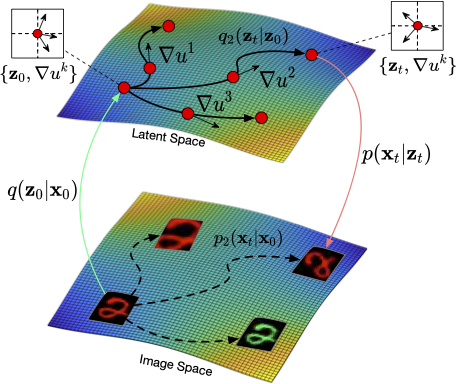URL: https://physikseminar.desy.de/hamburg/colloquia_in_2023/13_june_2023/@@siteview
Breadcrumb Navigation
Intelligence as hydrodynamics and hydrodynamics through intelligence
Max Welling (University of Amsterdam)
Auditorium (DESY Hamburg) and Zoom, 16:00h
In this talk we will propose a model for intelligence inspired by fluid dynamics. By modeling the dynamics of neural activity through a PDE, we achieve a number of interesting properties.
First, we observe that latent representations transform under sensory input transformations as waves, which are in turn well modeled as the evolution of a fluid. We can use this analogy to learn "disentangled representations" of the input, meaning that every input is embedded in a point in latent space which has associated to it a number of tangent directions in which the input transforms in prescribed ways (e.g. rotating, scaling, etc.). We can relate this to equivariant representations but for arbitrary transformations rather than symmetry groups. We show that this strong inductive bias can lead to the formation of topographic organization of neurons, and leads to good predictive performance. We also discuss the reverse, namely how to use deep learning to model PDEs better, in particular the Navier Stokes equations that model the weather.

This is a hybrid colloquium.
Connection details at https://desy.zoom.us/j/99616528733
Meeting ID: 996 1652 8733
Meeting Password: 733220



